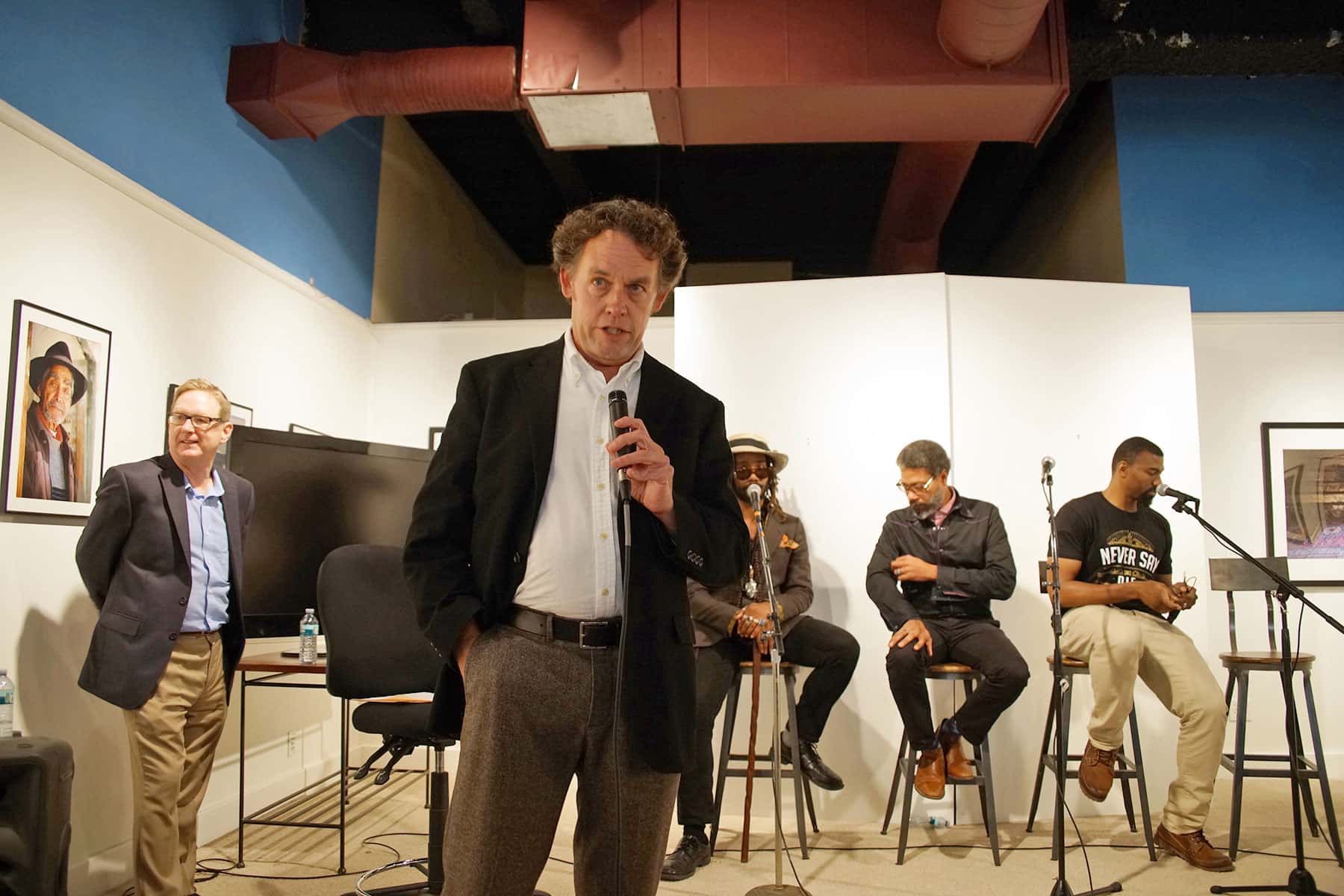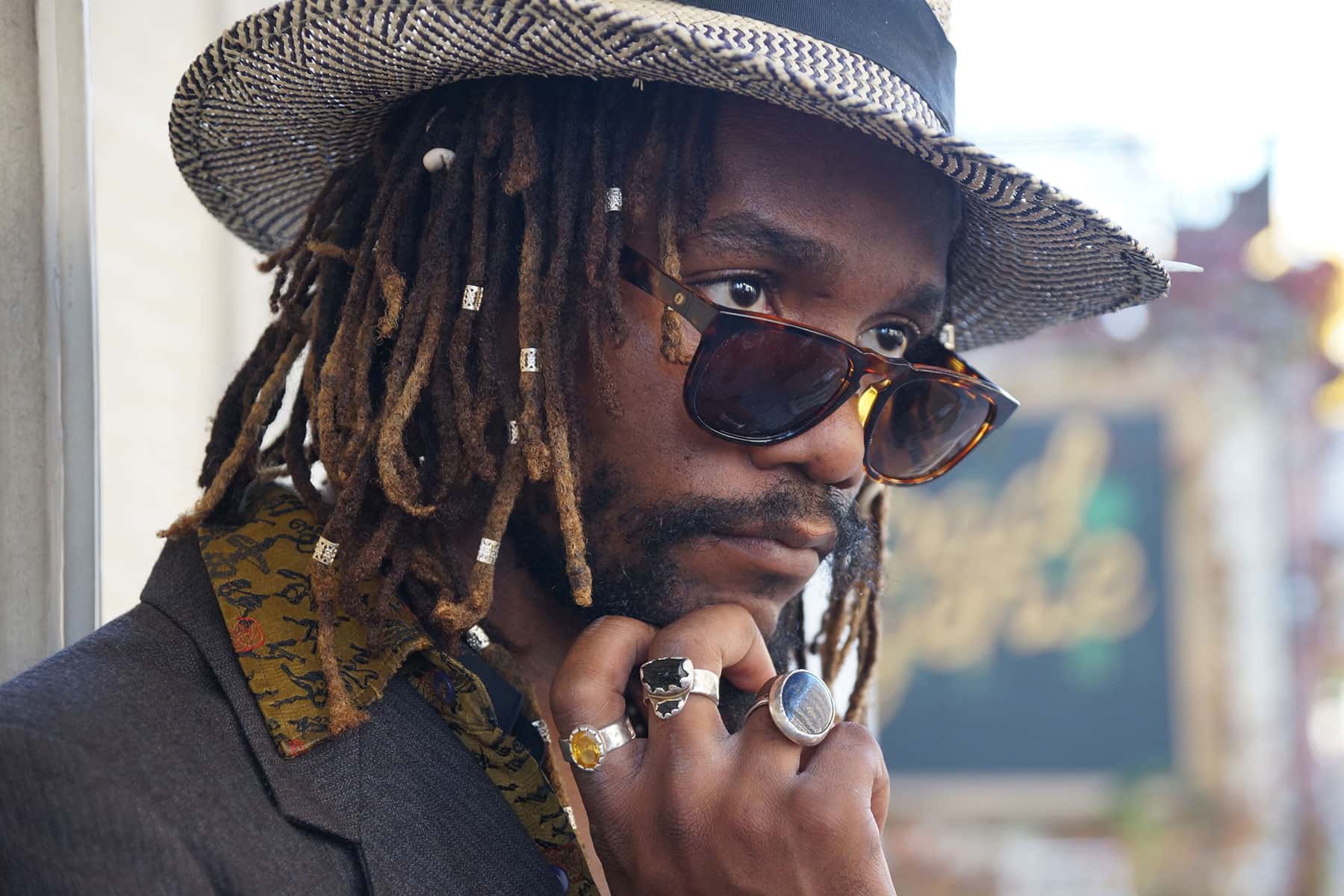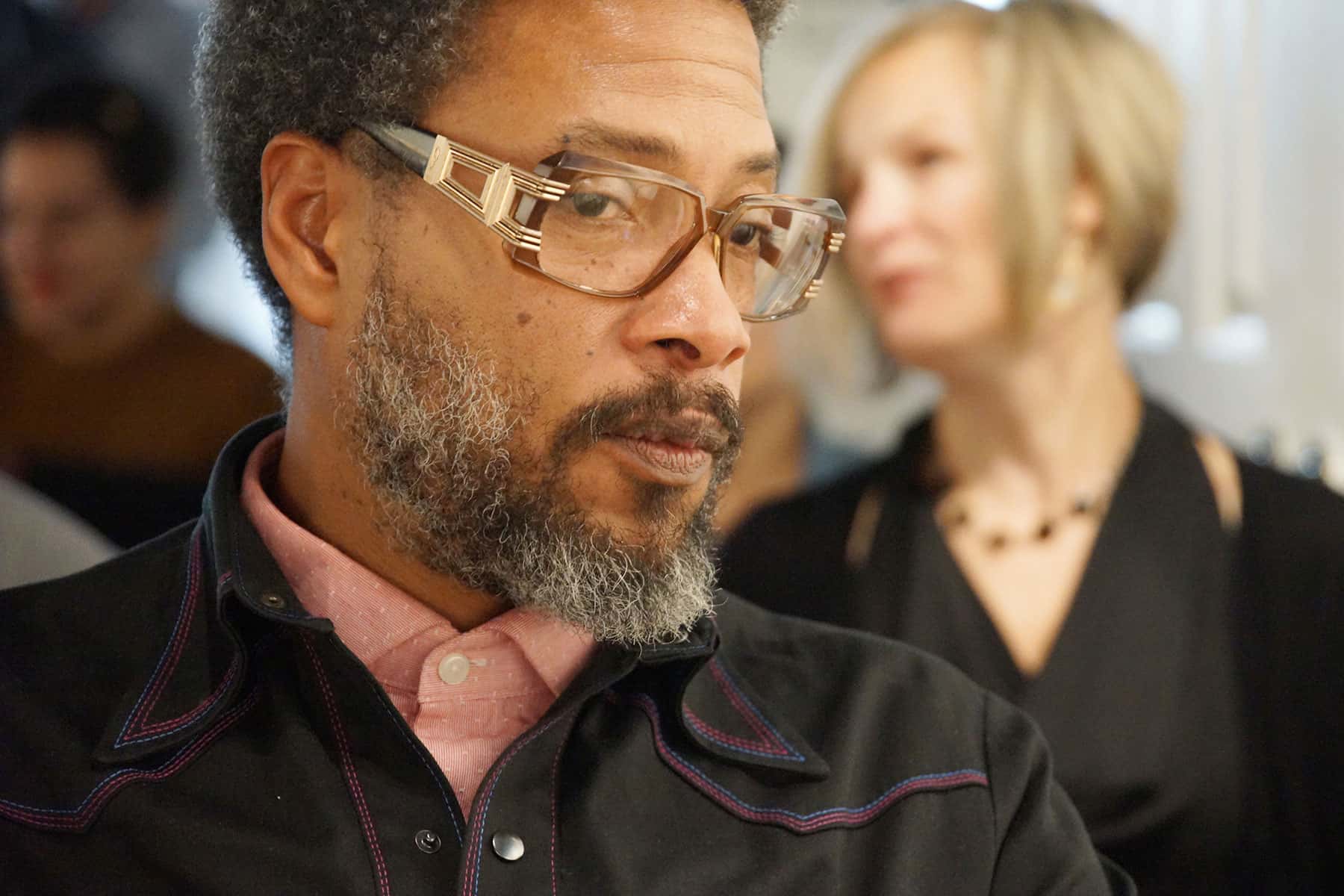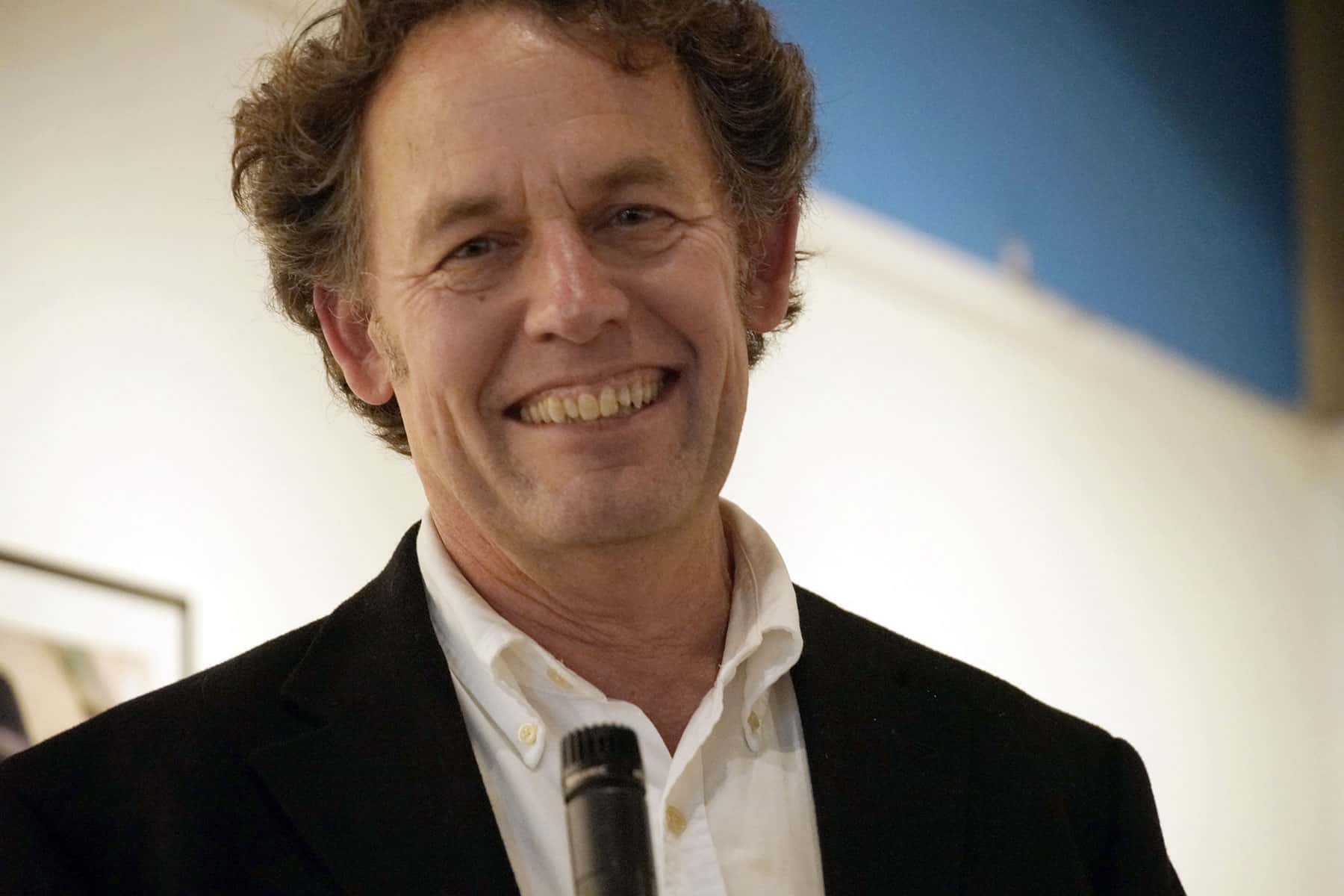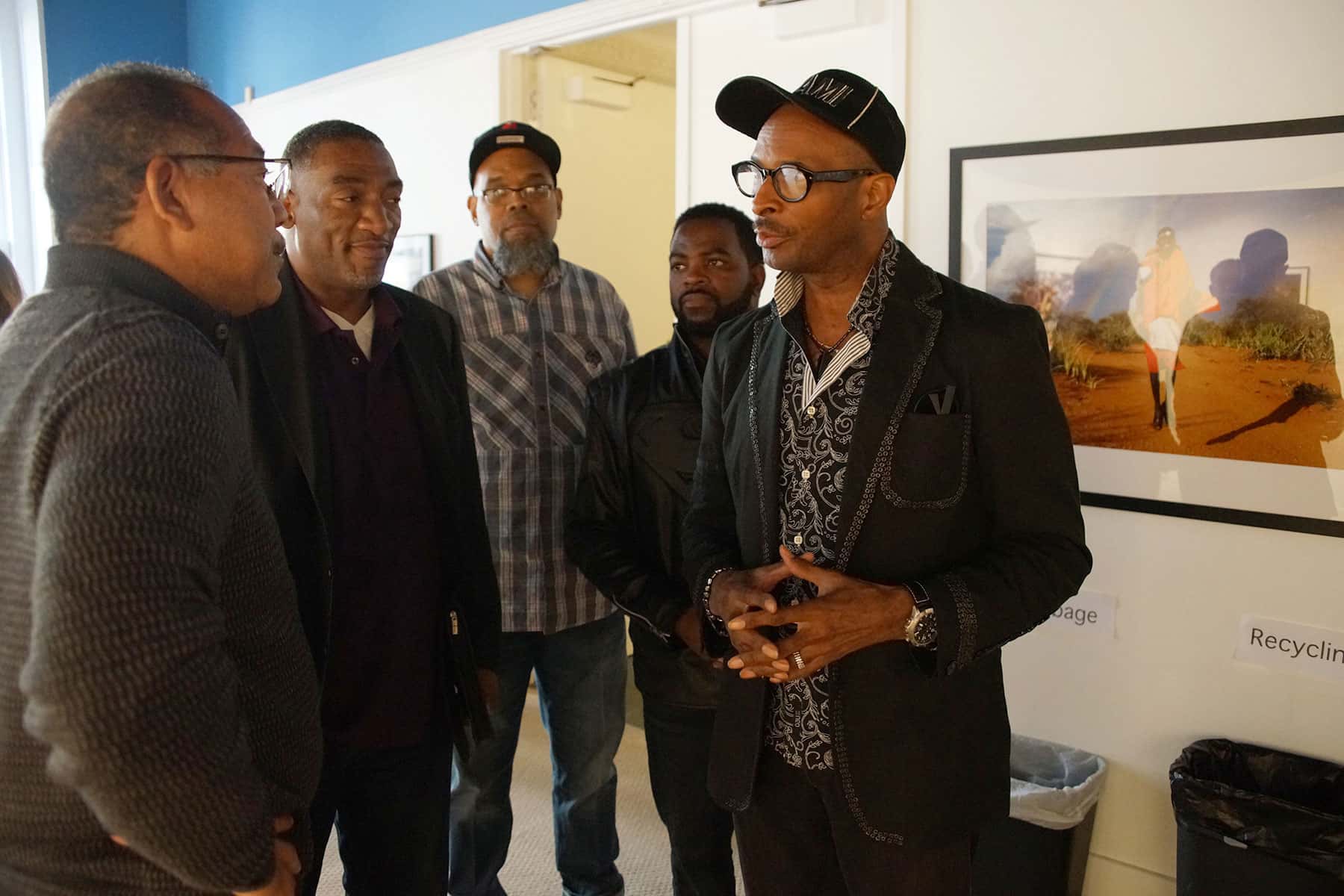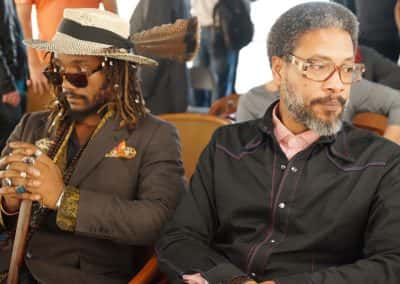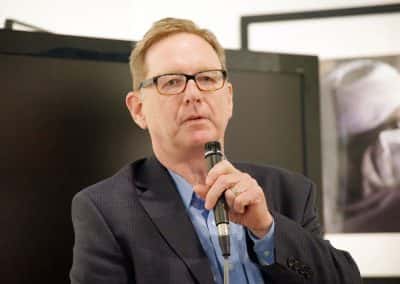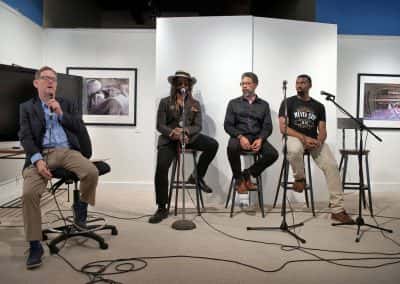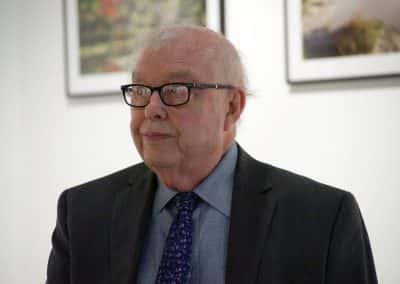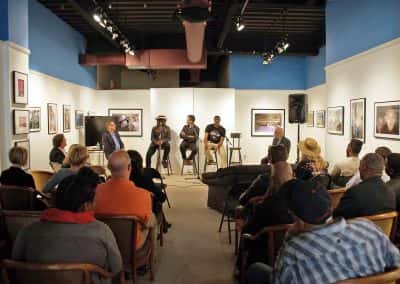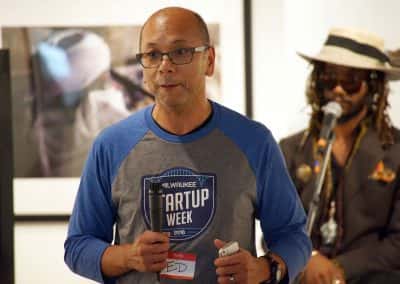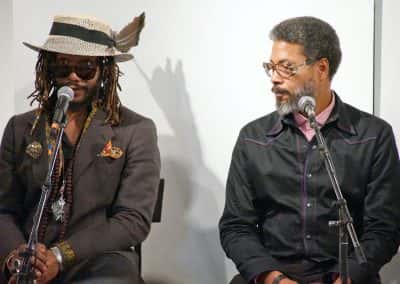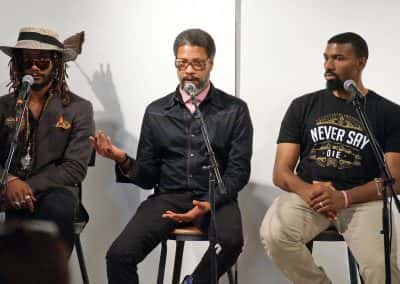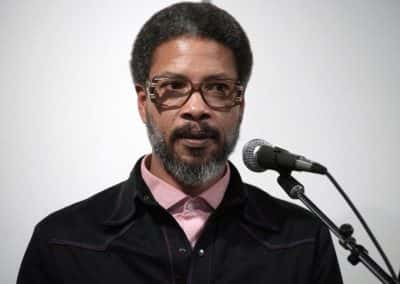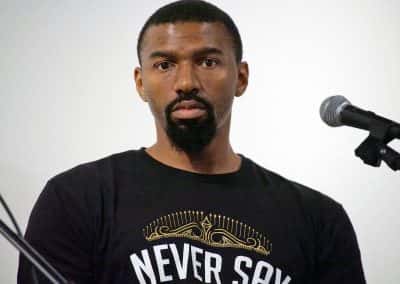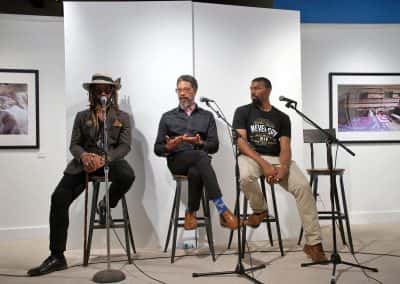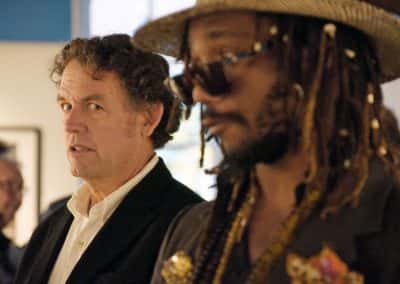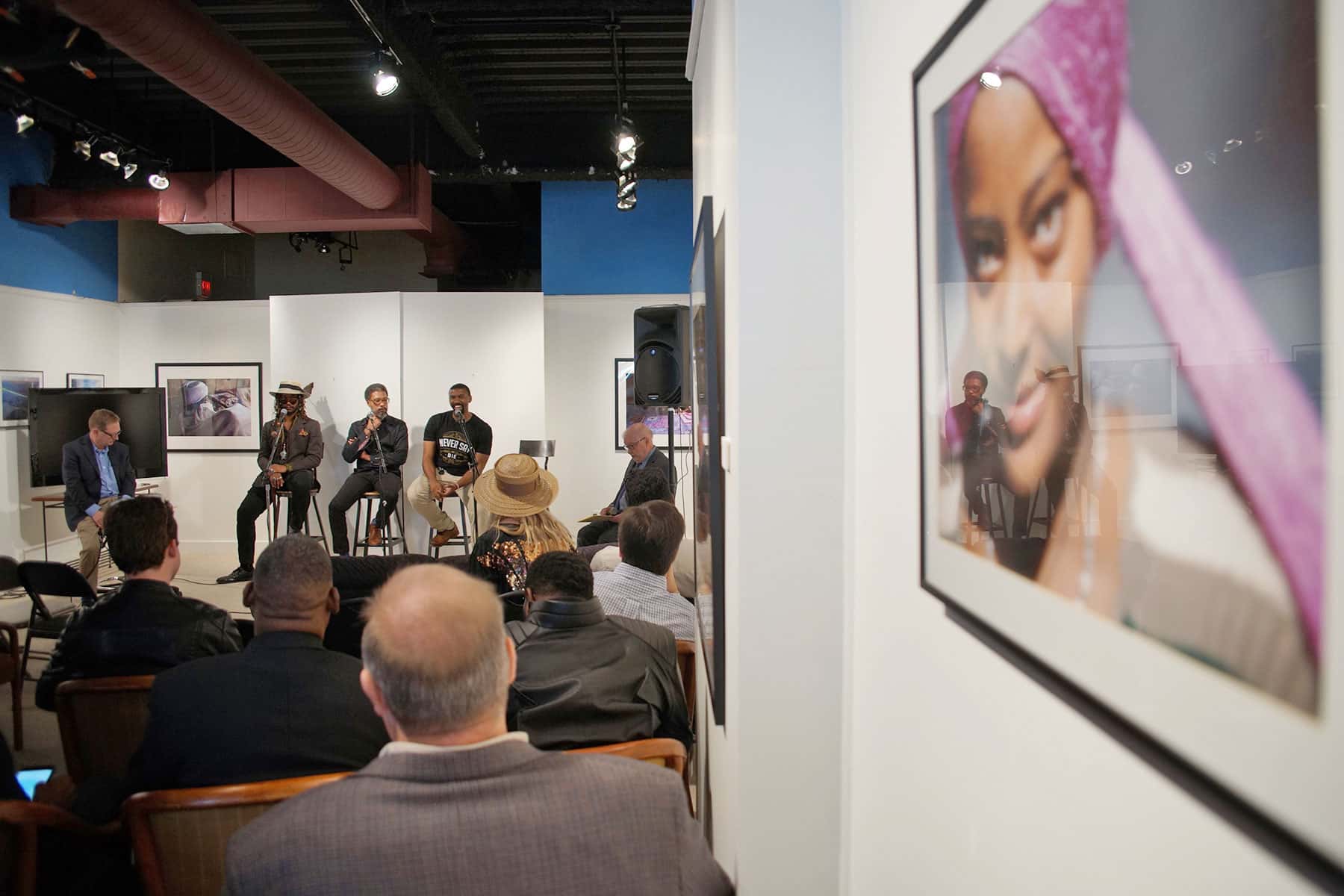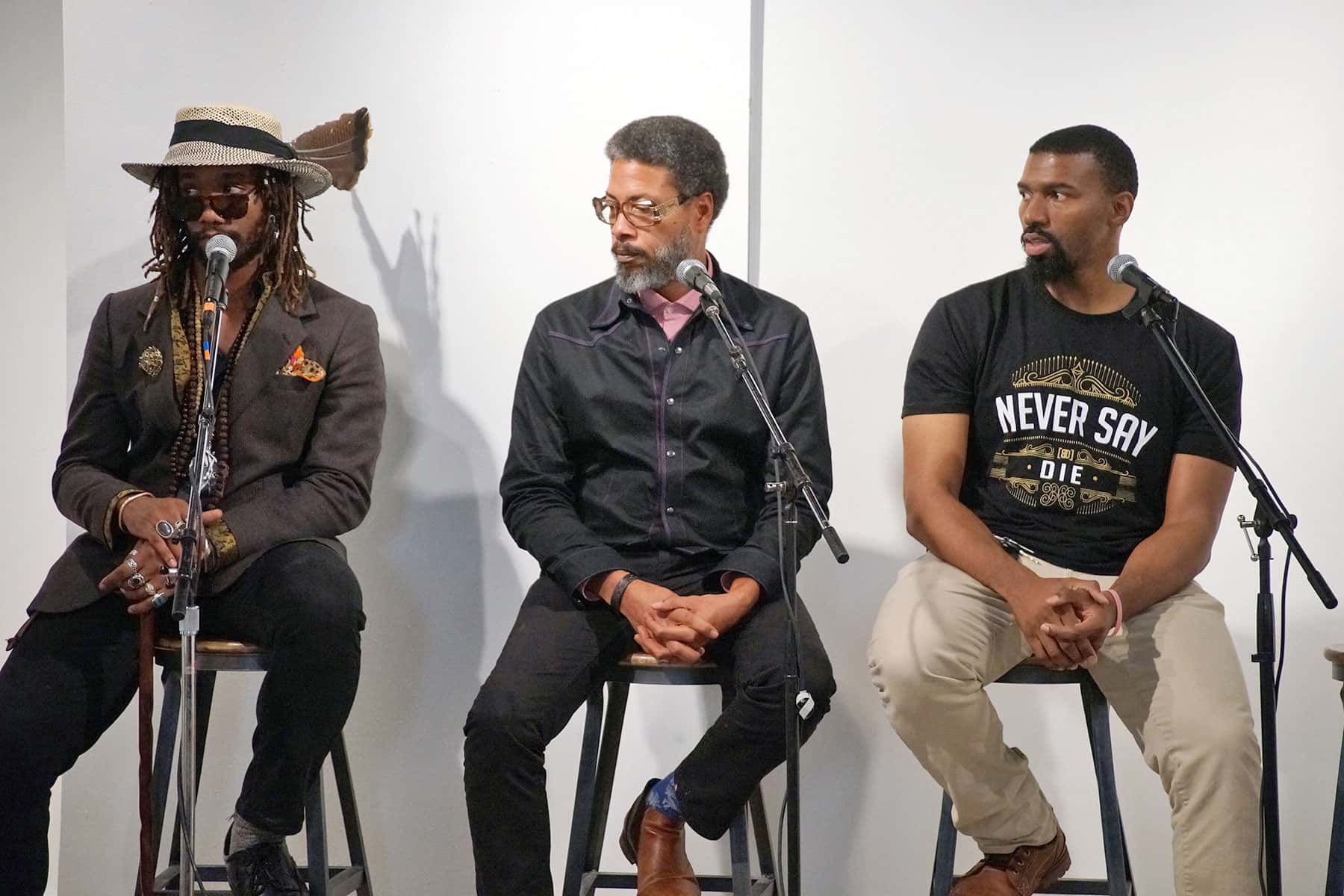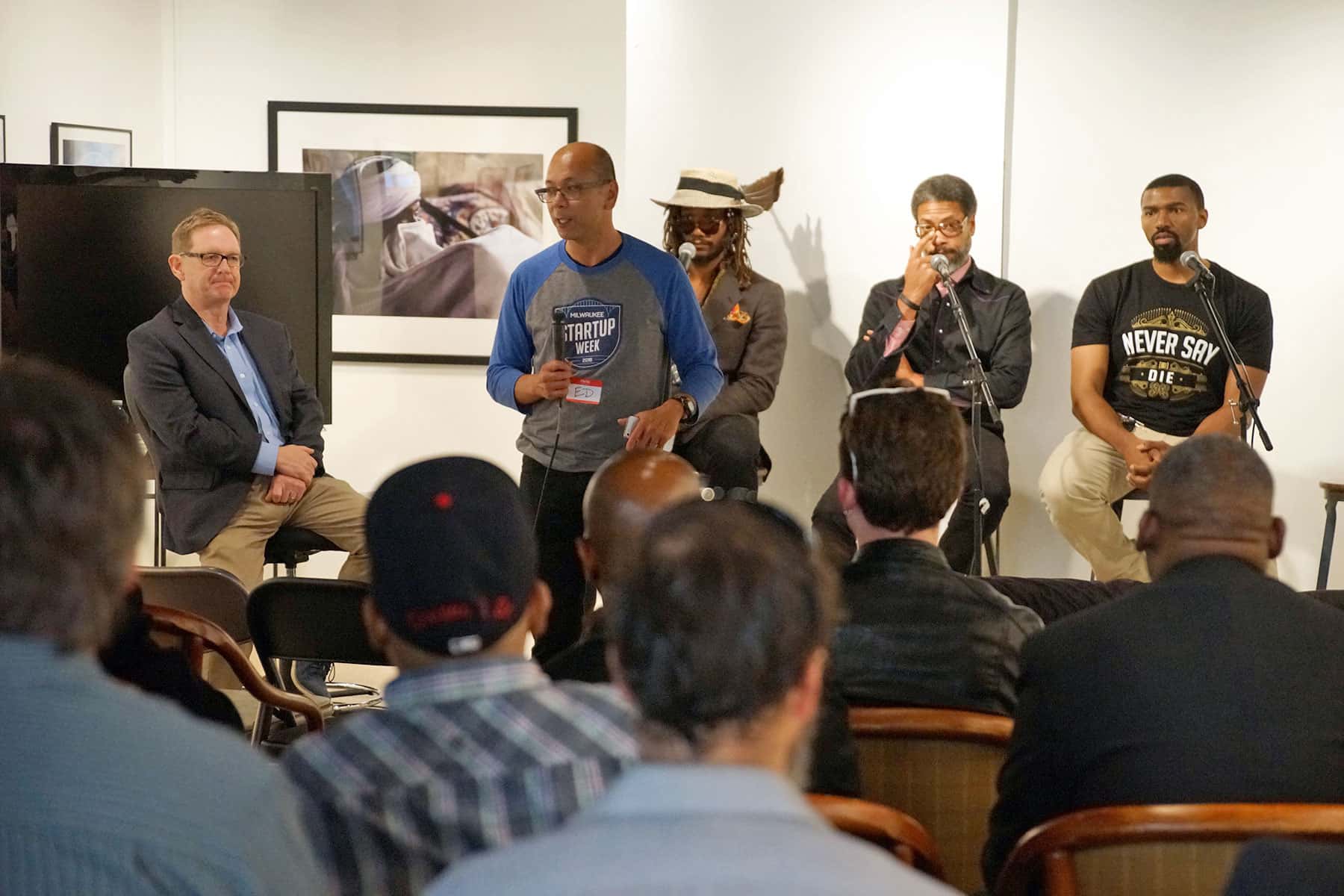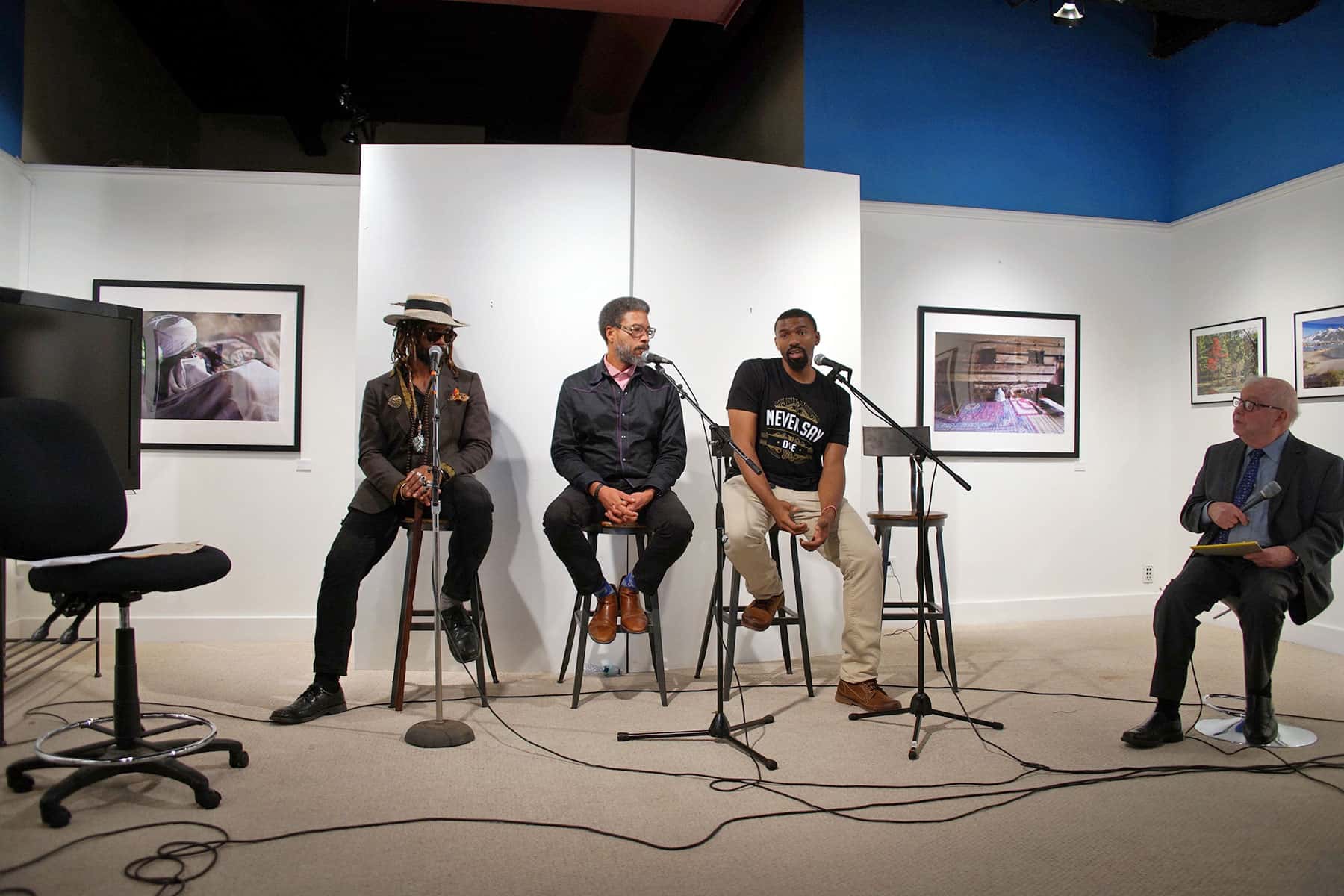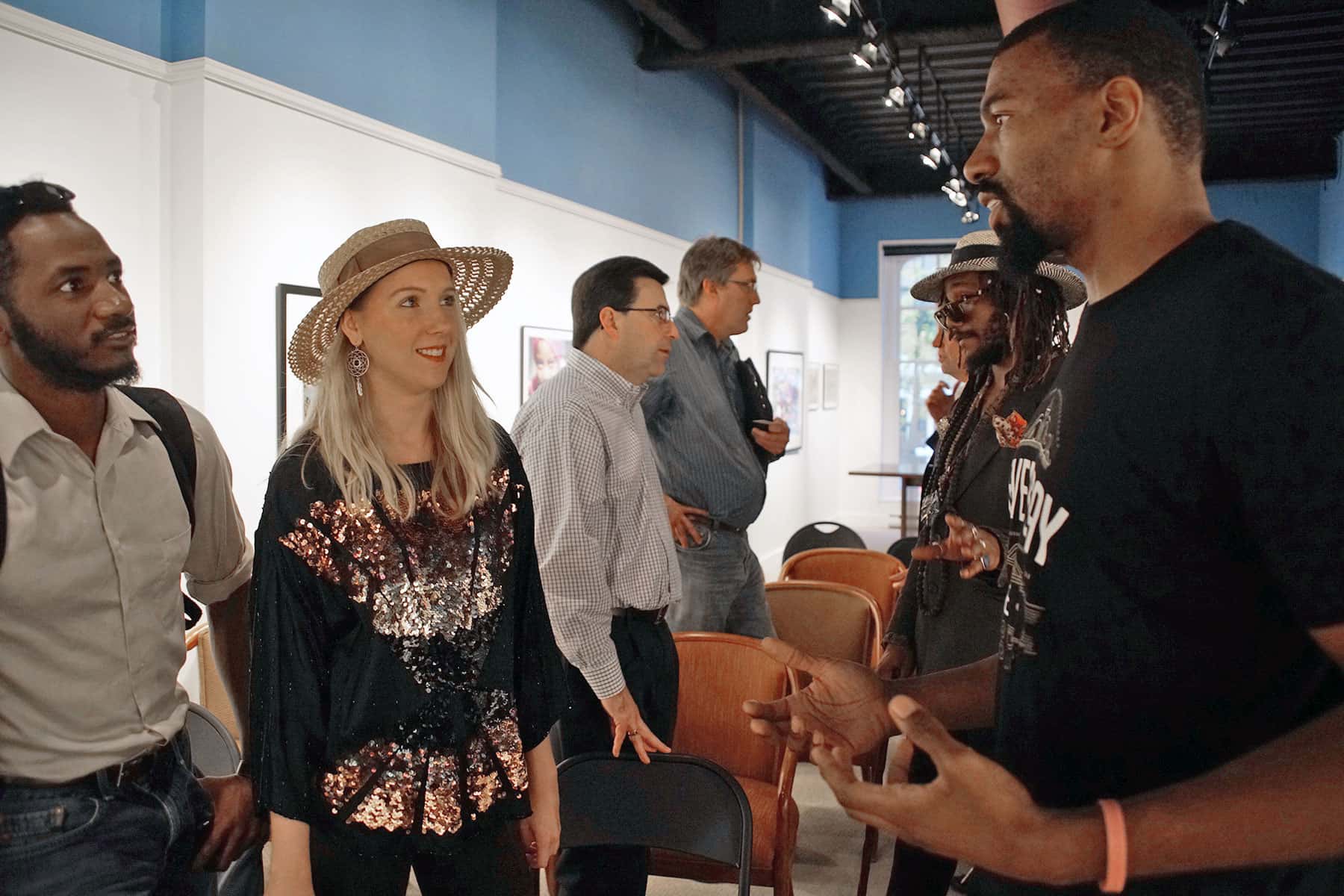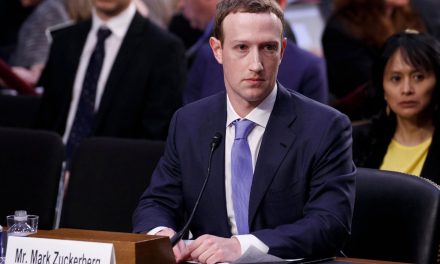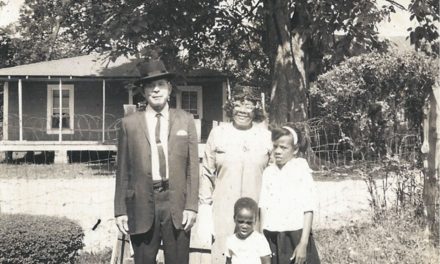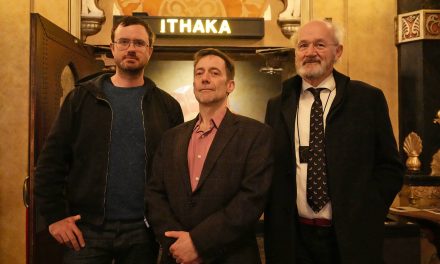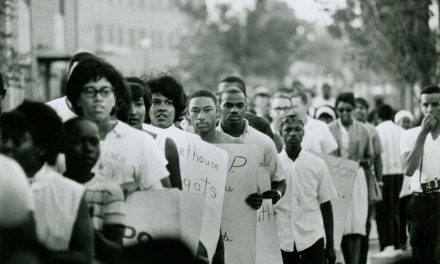
The first ever Milwaukee StartUp Week held the panel Creativity, Diversity, and Entrepreneurialism on November 3, at the Harvest Strat Gallery next to the Milwaukee Independent’s editorial office.
The panel featured three prominent African American artists who talked about the connections between art and enterprise, and how Milwaukee could become more welcoming to innovators.
“My soul ain’t for sale, but my art sure is,” said Milwaukee artist Christopher MacIntyre Perceptions, according to spoken word artist Bobby Drake. Drake was member of the Milwaukee StartUp Week panel entitled Creativity, Diversity, and Entrepreneurialism in Milwaukee, which discussed the vital role of business acumen in creative industries.
Because Milwaukee consistently ranks last among America’s largest cities in studies regarding entrepreneurial opportunities, it is a difficult place for artists and businesspeople alike. Co-founder of Milwaukee StartUp Week Ed Javier had extensive experience with startups himself before moving to the area, but he realized the city’s potential when he began working with the Milwaukee StartUp group in January.
“Moving from Boston to Milwaukee I thought ‘this isn’t so bad,’ we have great resources,” said Javier. “We have 19 universities and colleges in the area, for example. The cost of living here is so cheap compared to Chicago. Most of the ingredients for success are here. We just have to get the word out.”
In addition to its low cost of living, Javier said, Milwaukee has potential for entrepreneurial growth because of the sheer amount of resources it offers to entrepreneurs. Part of the goal of StartUp Week was to introduce local entrepreneurs to the extensive resources at their fingertips, such as those provided by Wisconsin Women’s Business Initiative Corporation (WWBIC) and Wisconsin Housing and Economic Development Opportunity (WHEDA).
Both corporations were featured at StartUp Week’s “launch track,” which was an event that provided entrepreneurs with everything they needed to begin a business, from lawyers specializing in intellectual property law to marketing specialists to classes in computer coding.
An essential aspiration of StartUp Week was to bring the community of entrepreneurs together. This collective also includes artists, hence the development of the panel on creativity and diversity.
“When we look at startups it’s a whole ecosystem, made up of not just technology, but also the arts,” said Javier. “We also wanted to focus on diversity, especially within Milwaukee. We want to include everyone in this creative space.”
The Creativity, Diversity, and Entrepreneurialism panel consisted of Drake, community artist Reginald Baylor, and saxophonist and music producer Jay Anderson. All three artists subscribed to the use Baylor’s term for artists as “creative professionals,” because it illustrates the business side of the craft that is forgotten by most of the public. Baylor even considered his business, as an artist, to be a startup itself.
“Pursuing art full time was more of a faith thing than a logic thing,” said Baylor. “Startups take bravery. I’m not saying I’m especially brave, but you do have to make that leap to make your business work.”
The event was moderated by Doug Johnson, Director of Arena Entertainment for the BMO Harris Bradley Center, and Curtis Carter, Founding Director Haggerty Museum. Their questions guided the panelists and audience with interactive discussions.
The panelists articulated their ideas and visions for art in Milwaukee, as being an industry of artists seen as businessmen and taken seriously by the public. Anderson held that this view must first come from the artist themselves.
“My vision of art in Milwaukee is when artists know and understand their complete value and are respected by their peers for this value,” said Anderson. “But you can’t convince others of your worth if you don’t know your value. Finding out what your art is worth is a mission on its own, because art is not objective.”
Like Anderson, Drake recognized the importance of artists determining the value of their craft, but he also called for a change in attitude towards artists. He described how upon graduating from college, his peers who entered other fields were immediately considered professionals. According to Drake, artists are considered “less than” other traditional vocations, like entrepreneurs and architects.
However, Drake believed that artists have just as much to offer as the traditional professionals, if not more, especially in terms of providing culture to the city. Drake started the King Maker series, which invests in the creativity of Milwaukee youth. The premise of the program is that art retains young professionals. If young people do not have concerts, art shows, and other cultural outlets to spend their time with, they will have little incentive to remain in Milwaukee.
As a community artist, Baylor also thinks art benefits Milwaukee by not only providing culture, but by also offering a platform of conversation. With art, he said, “People can talk at the art and not at each other.”
All three panelists believed that the key to changing the public’s perception of art starts with early education. Funding for art in many Milwaukee schools is not ideal and, as a result, most young students are taught from an early age that art will not give them the same prestige as other careers.
“We’re not creatively healthy and that’s a result of education,” said Baylor. “The only reason there’s a basketball stadium is because of basketball gyms in our schools. If you take art out of our schools, students will not be as creative.”
Additionally, Baylor felt students are taught that art will not make them money, which is not necessarily true. People understand artistic success at the level of prolific pop stars, but they do not understand that “middle class” artists can make a living as well. According to Drake, art is a process like all startups. It requires tenacity and a willingness to be in it for the long haul to succeed.
The panelists provided attendees with a simple suggestion for how they could support their favorite artists: pay for their work. In an age of online streaming and video, it can be tempting to take art for free. But artists, like all people, need funding to live and continue making their craft.
“Use your dollar as a vote to show what art you want to celebrate Milwaukee,” said Anderson. “When you pay my band for music, then you are using your equity to put your ballot in and say, ‘this is what I want to represent Milwaukee.’ Artists are entrepreneurs. Vote for them the same way you would vote for your senator or congressman.”

